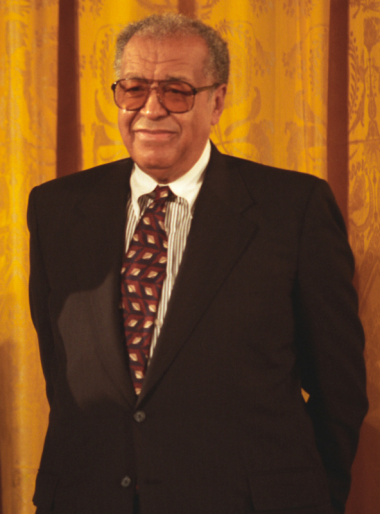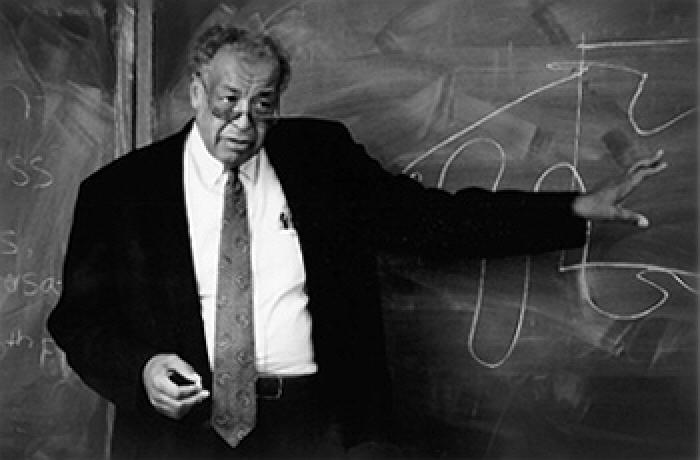
From 1989 to 1993, A. Leon Higginbotham, Jr. (1928–1995), a champion of integration and civil rights, served as the chief judge of the U.S. Court of Appeals for the Third Circuit (the federal appeals court in Philadelphia, Pennsylvania) and, in 1995, received the highest civilian honor in the United States—the Presidential Medal of Freedom. An authority on racism in America, Leon's activism in civil rights began as a sixteen-year-old engineering student at Purdue University, where he and other Black students were permitted to study but were forced to live off campus in a crowded, unheated attic. When he addressed the inadequacy of the housing with the college president, he was told he could leave the university, which he did—but not before challenging the nationally prevalent system of racial discrimination. He often referred to himself as a "survivor of segregation."
Born Aloyisus Leon Higginbotham, Jr., in Trenton, New Jersey, Leon earned a bachelor's degree from Antioch College (1949) and a bachelor of laws degree from Yale Law School (1952). In 1969, he became the first African American to be elected a trustee of Yale University. During his long career in the field of law, he served as an assistant district attorney (1953–1954), worked in private practice (1954–1962, 1993–1998), and was Commissioner of the Federal Trade Commission (1962–1964). In 1964, he began his federal judicial service as a judge for the U.S. District Court for the Eastern District of Pennsylvania and in 1977 as a judge for the U.S. Court of Appeals for the Third Circuit, where he later served as the chief judge until his retirement in 1993. After his retirement, he taught at Harvard University (1993–1998).
Leon received more than fifty honors and awards during his life, wrote more than fifty articles for scholarly publications, and wrote two books about law and race in the United States—In the Matter of Color: Race and the American Legal Process: The Colonial Period (1978) and Shades of Freedom: Racial Politics and Presumptions of the American Legal Process (1996).



